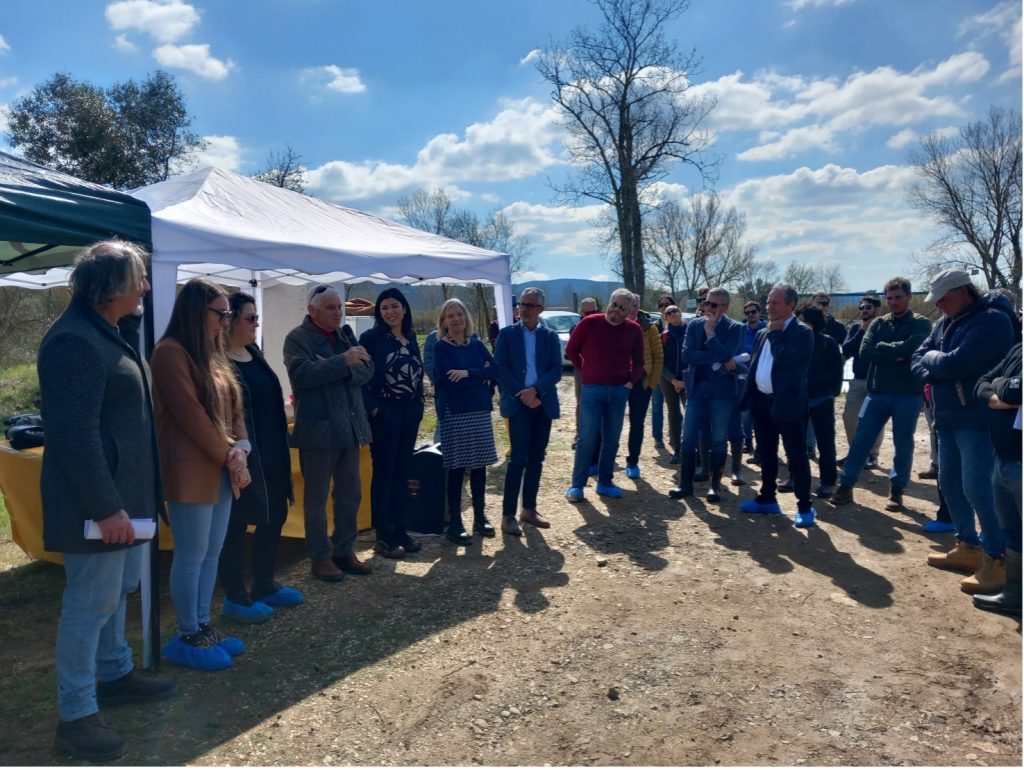On 21 March 2023, on the occasion of the upcoming World Water Day, 22nd March, authorities and scientific and technical institutions open the enlargement of the Managed Aquifer Recharge system in Suvereto (Livorno).
A first scheme was built within the framework of the European LIFE REWAT project, with scientific coordination by Rudy Rossetto (Scuola Superiore Sant’Anna). The second scheme was financed by the Italian Protezione Civile under the emergency actions against 2022 drought to Consorzio di Bonifica 5 Toscana Costa.
The works carried out consist of a further infiltration basin, next to the existing one. Through 2500 m2 of additional filtering surface, the current volume of 5000 m3 per day of water will be increased, until reaching a maximum annual infiltrated volume estimated at about 2 Mm3/year. The excess flows of the Cornia River, higher than the minimum ecological flow, constitute the source of recharge water.
In terms of adaptation to climate change, these solutions can be defined as Nature-Based Solutions, in that they mimic natural processes. The advantages compared to traditional waterworks consist in shorter construction times, low investment costs and the occupation of limited areas, and low to null environmental impact, while adding ecological value. This scheme exploits the storage and transmission capacity of the Val di Cornia aquifer without using large artificial infrastructures.
The event was attended by the Councilor for the Environment of the Tuscany Region Monica Monni together with Jessica Pasquini, Mayor of Suvereto, Alberta Ticciati, Mayor of Campiglia Marittima, Giulio Parodi the Councilor for urban planning of Piombino, Giancarlo Vallesi, President of the Consorzio di Bonifica 5 Toscana Costa, Stefano Taddia, President of ASA and Laura Ercoli, professor at Scuola Sant’Anna and vice-coordinator of the Crop Science Research Center. The event was also attended by private citizens, farmer’s association and the students of the Scuola Superiore Sant’Anna Professional Master in Sustainable Management of Resources.
After the traditional tape cutting, Rudy Rossetto led a short tour of the MAR scheme showing the functions and processes.
Val di Cornia is the area of the Italian NEXUS-NESS NEXUS Ecosystem Lab. NEXUS-NESS is then creating an environment for stakeholder participation and increasing awareness on the interlinkages among water resources management, food production and energy production and consumption. In this case, partner Scuola Superiore Sant’Anna supported the Consorzio di Bonifica 5 Toscana Costa in designing the MAR scheme and in delivering evidences of the importance and reliability of nature-based solutions in the rural environment.


